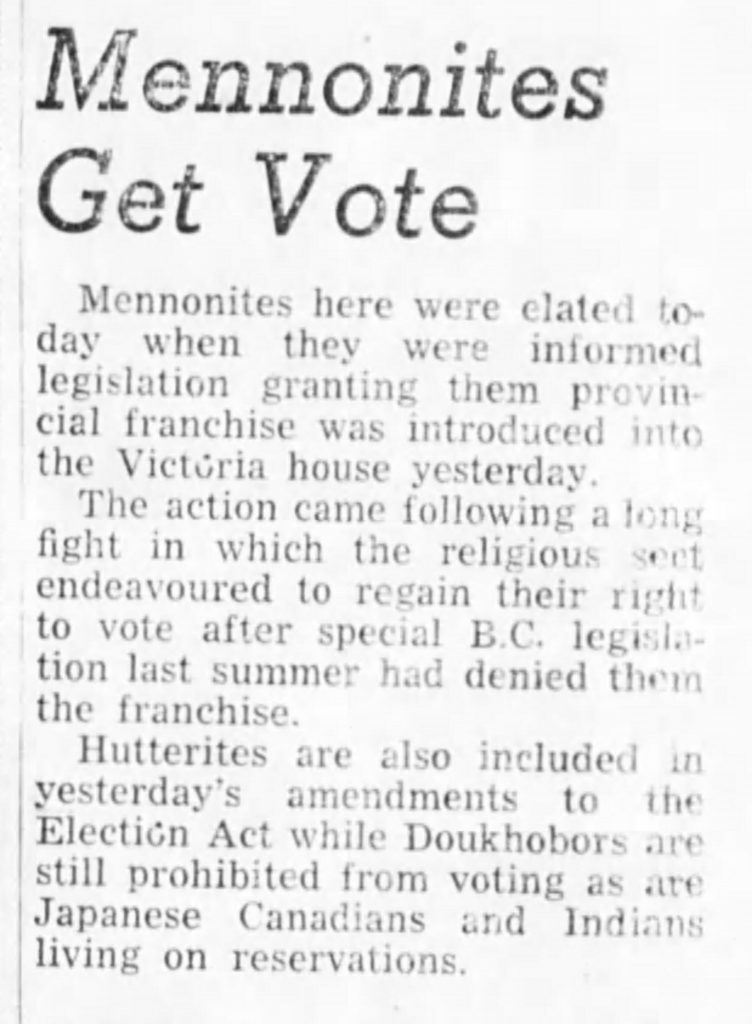While Mennonites were moving generally toward a positive cross-cultural relationship with non-Mennonites in the late 1940s and early 1950s, the process was not without challenges. The post-war period is described as “a time when the ethnic Mennonite community was undergoing huge changes, with some individuals clinging to tradition and others advocating assimilation.” This is seen within Mennonite circles, and there were also mixed feelings in the non-Mennonite community. While Mennonites were welcomed by many as they assimilated into society, there were also those who complained, “they only move when they are under religious persecution” and hoped that Mennonites would eventually move on, showing the nuanced nature of the process.
Voting Rights Conflict
“That religious, racial, and legal discrimination of this kind can be so casually enacted should be a matter of deep concern to all who hope for the continuance of our democratic system of government…Why cannot their deep seated religious convictions be honoured?”
- F. Flanigan, Letter to the Editor of the Chilliwack Progress, Nov. 5, 1947
Wartime resentment toward Mennonites did not disappear immediately after 1945, even as Mennonites began to integrate into society. In the late 1940s, tension arose as Mennonites, along with Hutterites and Doukhobors, were excluded from the provincial vote by an amendment made to the Elections Act in 1947, except for those who had served in the military. The entire community was divided over this issue, as some felt that if all Mennonites were able to vote, they would be “a minority that does not bear all the responsibilities and have all the privileges of the majority.” Others encouraged government leadership to allow Mennonites to vote, such as the Chilliwack Trade Board President and Vice President, who sent a wire to Leslie Eyres, Minister of Trade and Industry, stating: “The Chilliwack Board of Trade believes that denial of vote to Mennonites would be deplorable. These people are good citizens and proud of their citizenship.”

Chilliwack Progress April 21, 1948 (Chilliwack Museum and Archives)
In 1948, the Provincial Elections Act was revised to include all Mennonites. Leslie Eyres was instrumental in this success; however, this was a stark contrast to Eryes’ previous position in 1942, at which time he made a “pointed declaration, that if the people would not fight for Canada they should not be allowed the privilege of the franchise.” Perhaps it can be said that after WWII, the attitude toward Mennonites shifted, as the threat of defeat no longer loomed, and their “perceived lack of wartime participation was no longer seen to be a problem.” The Progress describes the issue as “a long fight” against the 1947 amendment, but it is one that represents a gradual cooperation between cultures, as individuals showed support for the Mennonite cause.